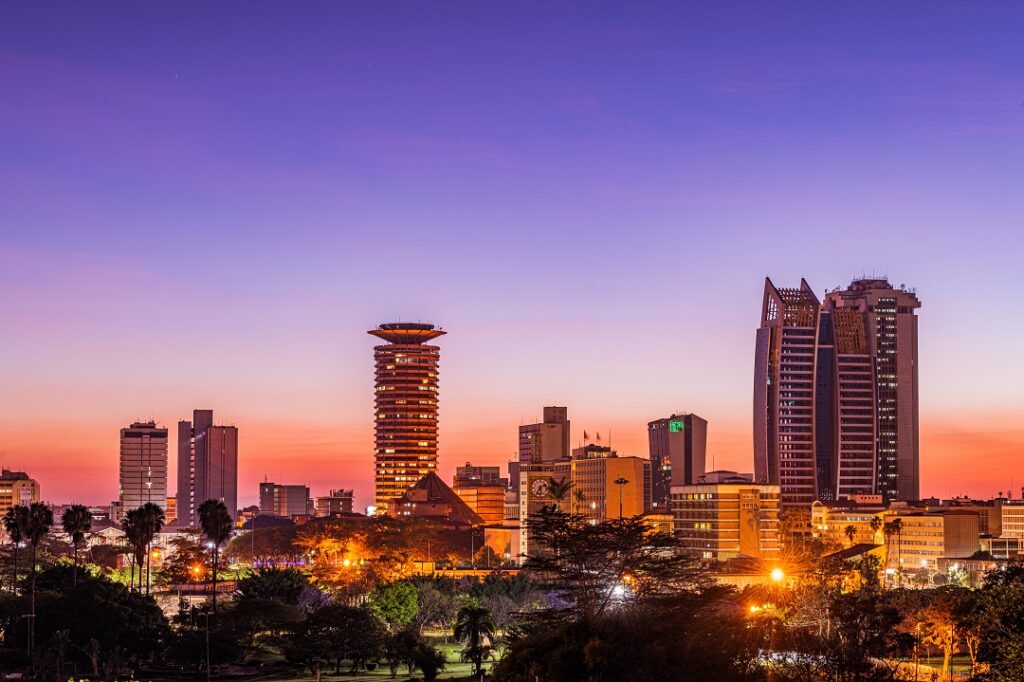- Output and new orders increase slightly.
- Employment growth quickens amid improved outlook.
- Inflationary pressures remain at historic highs.
Business conditions in Kenya improved for the first time since January, the latest Purchasing Managers’ Index (PMI) indicates. August Stanbic Bank Kenya PMI pointed to a slight improvement in the health of the private sector for the first time in seven months, as output and new orders returned to expansion territory amid greater political stability.
Job creation accelerated and purchasing activity picked up, whilst firms grew more confident about their output prospects. That said, the improvement in business conditions was only mild, and continued to be weighed down by elevated price pressures.
Indeed, input prices continued to rise at an historically strong pace, leading to the fastest increase in selling charges since June 2022.
PMI readings above 50.0 signal an improvement in business conditions on the previous month, while readings below 50.0 show a deterioration. At 50.6 in August, up from 45.5 in July, the headline PMI signaled an expansion in business conditions for the first time since January.
“There was a notable expansion of output in August, specifically in services and manufacturing. New orders, too, ticked up in August, with export orders received by firms rising for a sixth straight month,” said Christopher Legilisho, Economist at Standard Bank.
Read Also: Kenya’s private sector activity dips further in July as Uganda grows
Calm political environment
During the month, firms noted that improved food supply, increased marketing of products and a calm political environment supported new orders growth.
“Employment prospects remained promising as firms indicated hiring for a sixth successive month to complement existing teams and ramp up business activity,” Legilisho added.
The quantities purchased increased marginally, in line with output and new orders, while suppliers’ delivery times improved as vendors delivered items timeously to improve their cash positions.
“However, tough business conditions and inflation pressures remain a pressing concern for Kenyan businesses, as input prices and staffing costs were seen rising due to a weaker exchange rate as well as higher taxes related to the recently enacted tax measures in the Finance Act,” Legilisho said.
Read Also: Kenya’s Central Bank raises key lending rate to fight inflation
Price increases across industries
However, the index was only slightly above the 50.0 mark, indicating that the expansion was only marginal. After deteriorating at the sharpest rate in almost a year in July, output levels recovered slightly in August.
Surveyed companies often noted that greater political stability had helped to boost demand and lead to higher activity, especially in the services and manufacturing sectors where growth resumed. Similarly, inflows of new work expanded over the course of August, bringing to an end a six-month sequence of decline.
However, the rate of growth was only fractional, as improvements arising from reduced political unrest and stronger demand conditions were almost completely offset by the negative impact of price increases.
Moreover, August survey data signaled that inflationary pressures were still historically marked and continued to hit business expenses. Nearly 38 per cent of firms saw a monthly rise in their input costs, marking one of the sharpest rates of cost inflation in the survey’s near-decade history.
Analysts often linked higher costs to sustained currency weakness, although increased fuel prices and higher taxes were also mentioned. As a result, the rate at which selling prices increased was also among the fastest seen since the survey began, rising to the highest level in over a year.
Businesses often reported having to keep margins stable by passing higher purchase prices through to clients.
Read Also: Kenyan Shilling falls to all-time low as Fed rates take toll
Faster pace of job creation
The latest survey data signaled a quicker rate of job creation in August as firms sought to build workforce sizes and support higher activity. Likewise, input purchasing grew for the first time in five months and to the greatest degree since January, leading
to a renewed expansion in firms’ inventories.
Lead times on inputs meanwhile improved modestly and for the fifth month running. According to panelists, vendors often delivered items more quickly in a bid to improve cash flow.
Business confidence regarding the year ahead picked up to a five-month high in August. Firms with a positive outlook often cited expansion plans such as opening new branches and broadening their product and services offerings.
The Stanbic Bank Kenya PMI is compiled by S&P Global from responses to questionnaires sent to purchasing managers in a panel of around 400 private sector companies.
The panel is stratified by detailed sector and company workforce size, based on contributions to GDP. Agriculture, mining, manufacturing, construction, wholesale, retail
and services are among the sectors covered by the survey. Survey responses are collected in the second half of each month and indicate the direction of change compared to the previous month.
